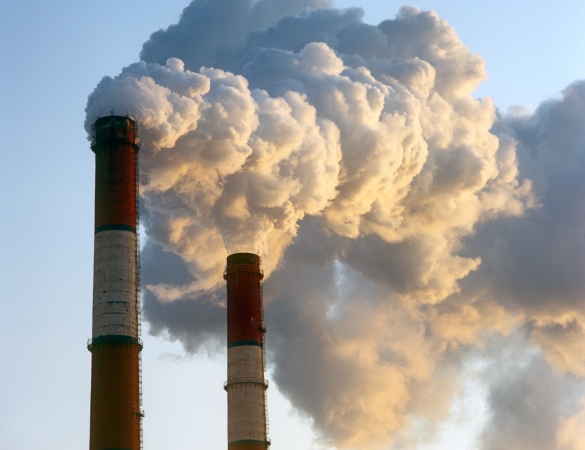The International Energy Agency (IEA) released a special report on energy use and climate change today, warning that the global goal of limiting the temperature increase to 2º Celsius is likely to fall short of achievement. Global energy-related carbon dioxide emissions rose 1.4% in 2012 to a record high 31.6 billion metric tons.
The IEA reports that it a temperature increase of 3.6º to 5.3º Celsius is the probable long-term average temperature increase. The 2º Celsius target “still remains technically feasible, through extremely challenging,” and the agency says that “intensive action” is required before 2020 if the globe is to have a chance of meeting that target. The current IEA estimate calls for greenhouse gas emissions in 2020 of about 4 billion metric tons above the level required to meet the 2º Celsius goal.
The largest contributor to the 2012 increase in global carbon dioxide emissions was China, even though the country’s growth in emissions was among the lowest in the past decade. In the United States, emissions fell by 200 million metric tons, about equal to emissions in the mid-1990s.
China’s decline in emissions growth is the result of more deployment of renewable energy sources and a higher energy intensity in its economy. “Energy intensity” is a calculation of an economy’s units of energy consumed per unit of GDP. The drop in U.S. emissions is the result of fuel-switching from coal to natural gas in the generation of electricity.
To cut emissions enough to meet the 2020 target, the IEA presents its “4-for-2º Scenario,” which includes four goals:
- Adopt specific energy efficiency measures to save 49% of emissions;
- Limit construction and use of least-efficient coal-fired power plants to save 21% of emissions;
- Minimize methane emissions from oil and gas production to save 18% of emissions; and
- Accelerate phase-out of subsidies to fossil-fuel consumption to save 21% of emissions.
The IEA’s report, Redrawing the Energy-Climate Map, says that global subsidies to fossil-fuel production totaled $523 billion in 2011, about six times the amount for renewables subsidies. The agency also notes that 15% of global carbon dioxide emissions receive a subsidy of $110 per metric ton, while just 8% are subject to a carbon price.
Various carbon pricing mechanisms have failed to live up to hopes because the global economy has been so weak over the past several years. The IEA notes the result:
The weight of scientific analysis tells us that our climate is already changing and that we should expect extreme weather events (such as storms, floods and heat waves) to become more frequent and intense, as well as increasing global temperatures and rising sea levels.
In a particularly glaring bit of hopefulness, the IEA estimates that net revenues for nuclear and renewable generation would rise by $1.8 trillion through 2035 while fossil-fuel generation will decline by an equal amount. To reach that goal, the agency expects that about 30% of new fossil fuel plants would be equipped with carbon capture and storage (CCS) technology. The catch is that there is no cheap or easy way to implement CCS, and that goal almost certainly cannot be met.
It is easy to quibble with many of the IEA’s conclusions and estimates, and there is sure to be plenty of quibbling in the days ahead. But the value of the IEA’s estimates is that they put a stake in the ground and offer at least a starting discussion point for mitigating carbon emissions.
Travel Cards Are Getting Too Good To Ignore (sponsored)
Credit card companies are pulling out all the stops, with the issuers are offering insane travel rewards and perks.
We’re talking huge sign-up bonuses, points on every purchase, and benefits like lounge access, travel credits, and free hotel nights. For travelers, these rewards can add up to thousands of dollars in flights, upgrades, and luxury experiences every year.
It’s like getting paid to travel — and it’s available to qualified borrowers who know where to look.
We’ve rounded up some of the best travel credit cards on the market. Click here to see the list. Don’t miss these offers — they won’t be this good forever.
Thank you for reading! Have some feedback for us?
Contact the 24/7 Wall St. editorial team.




